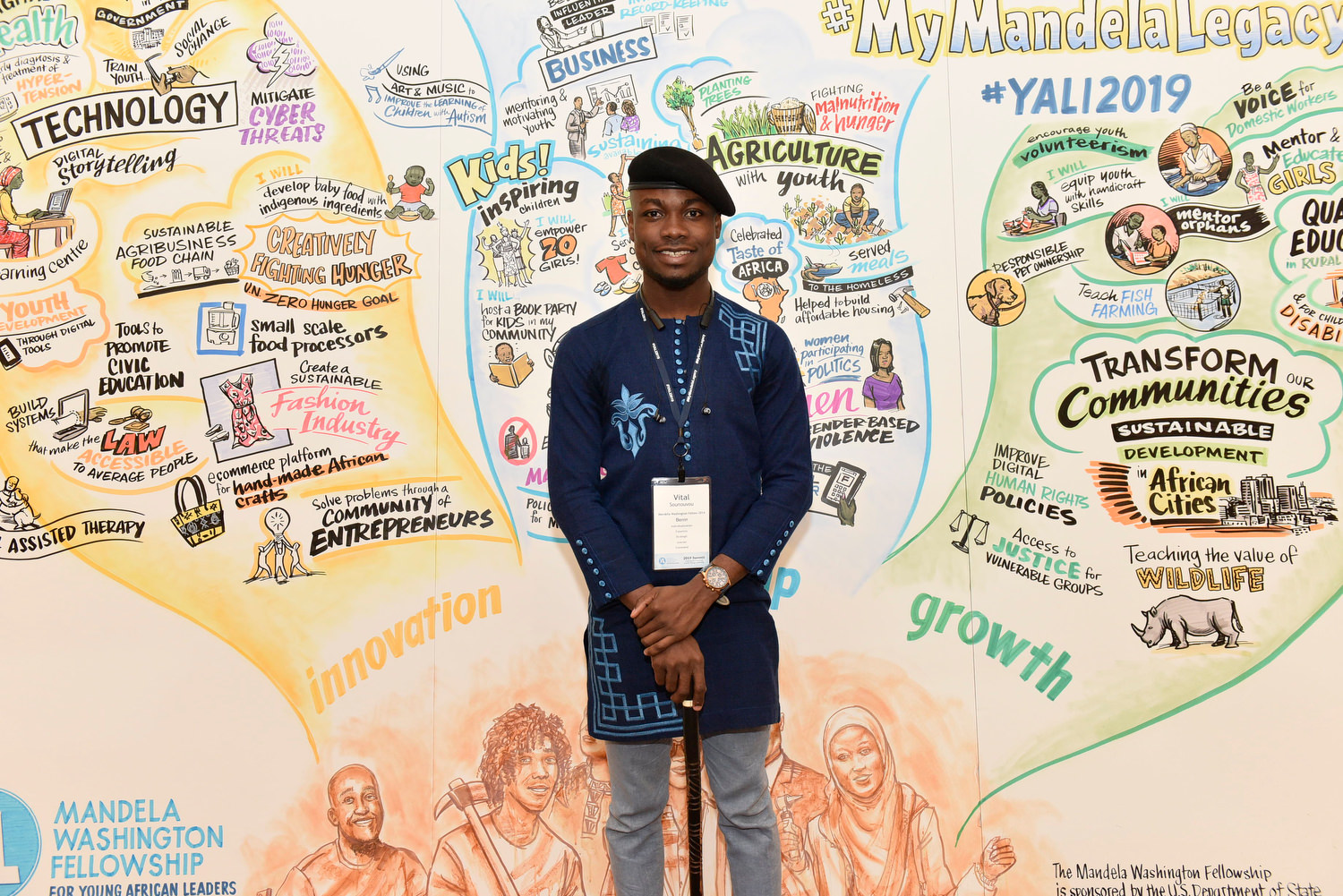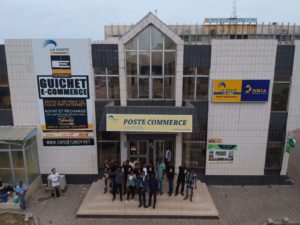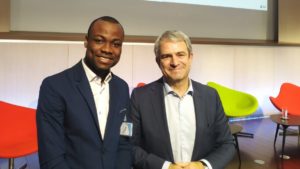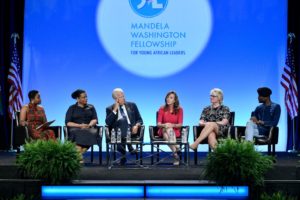Bringing Africa to the world through e-commerce
When he came to the United States during the inaugural year of the Mandela Washington Fellowship, Vital Sounouvou, 2014 Fellow from Benin, had an idea that he could use the internet to help African small businesses get their goods to new markets and increase their profits. Since his Fellowship five years ago, Vital’s company Exportunity has grown from an idea to a thriving e-commerce marketplace and fintech company focused on helping Africa trade with the world.
We had the opportunity to sit down with Vital earlier this year and hear more about his entrepreneurship journey, from the Mandela Washington Fellowship to where he stands today as a global business leader. The content of the interview has been lightly edited for clarity.
I am confident that the next 20 years are the years of U.S.-Africa trade.”
Vital Sounouvou, 2014 Fellowship Alumnus, Benin and Founder of Exportunity

How has Exportunity grown and changed since the Fellowship?
Before the Mandela Washington Fellowship, Exportunity was much more of an idea, but the Fellowship made it possible. I was at The University of Texas at Austin for my Leadership Institute and their motto is “What starts here changes the world.” I really think that this is something that was ingrained in the people there.
Since 2014, Exportunity has mastered business-to-business trade and made it adaptable to the African environment: we created new ways for factories to distribute directly to small businesses, including establishing over 800 retail points in Benin by partnering with the national post office and mobile phone/money kiosks. I saw this leveraging of existing infrastructure as a way for Exportunity to expand without having to invest in building brick and mortar stores of our own. We are also expanding right now to Nigeria, South Africa, and Cote d’Ivoire.

Starting in 2018, we decided to make the platform business-to-customer as well. This expansion involves launching and testing a new app version of the platform throughout 2019. It works like UberEats, but for all goods as well as delivery food and it is adapted to the African context. For example, since addresses in Africa aren’t always exact, a consumer can leave a voice message explaining where their goods should be delivered. The purpose of the model is to be inclusive and serve even the most marginalized of neighborhoods and populations. Consumers can pay with cash, credit cards, or mobile money.
What connections did you make through the Fellowship network that have benefitted your work?
Thanks to another Fellow, 2014 Fellow Vandana Boolell, I was able to incorporate my company in Mauritius. After my Professional Development Experience in Washington, D.C. with the Corporate Council on Africa (CCA), I had access to a wide network. For example, Ambassador Robert Perry at CCA invested his time and his money into Exportunity. Ever since then he’s been one of my biggest supporters and a mentor as well. After that I was able to meet Tony Elumelu, who is the chairman of the United Bank for Africa, which was a big change point because the bank today is one of my biggest supports.
Can you tell us about why the work that Exportunity does is important?
I believe that prosperity is first built by trade, but in Africa we historically haven’t had access to trade: payment systems have blacklisted most of our countries and logistics are very poor. In fact, it’s more expensive to ship between two African countries than to ship from China to Africa.
However, at the same time, there are huge opportunities in Africa. We have the largest free trade area in the world and the youngest population in the world. We also have the African Growth and Opportunity Act (AGOA), which is a great opportunity to promote trade between America and Africa.
But the problem is that, it can be very challenging for small businesses from both the United States and Africa to benefit from AGOA. What we do is important because we’re giving the power to the small businesses – those that employ 80% of the workforce.

What key partners have you connected with as Exportunity has grown?
In 2018, I was fortunate enough to be selected for an entrepreneurship program financed by Nestle. We realized that our goals were aligned in terms of promoting direct to consumer trade in Africa. As part of their Corporate Social Responsibility (CSR), they’re trying to help local businesses and producers. I was invited to their headquarters and I shared my story with them. I was advocating for the fact that you have to source from small businesses because those small businesses are bringing the impact that you’re trying to create through job creation.
Supply chain in Africa is a huge issue not only for small businesses but even for bigger corporations like Nestle. There are too many intermediaries between factory and consumer, and Nestle also lacks data on their customers, which means they can’t adapt their products to better suit their customers’ needs. So what we’re doing is simplifying supply chains across the cities and then the countries. Now at the era of the African Continental Free Trade Area (ACFTA), there’s no better time to optimize supply chain.
Today, we’re working on a pilot with Nestle in Benin, Nigeria, and South Africa. Additionally, in Cote d’Ivoire, Exportunity is currently beta testing an app they partnered with Nestle on called XportOn that allows users to order products sold close to them and have them delivered. Over 170 restaurants joined the app within ten days and over 500 users are testing the beta version.

What’s next for Exportunity?
Since the Fellowship, I’ve built so many strong business ties in Austin, TX that I’m planning to open a branch of Exportunity in the United States. The goal is to strengthen trade ties between Africa and the United States because we have so much to give to each other. Exportunity has value in the United States as well because American small companies need to be reinforced. We’re trying to give power back to small businesses by connecting them directly with factories and with consumers.
To that end, our platform was designed so that American businesses and consumers can access African businesses and consumers. America invests in people, and America invested in me; the least I can do is show Americans how beautiful the collaboration can become with Africa. I am confident that the next 20 years are the years of U.S.-Africa trade.
As told to Abbie Wade and Charlotte Renfield-Miller. Edited by Charlotte Renfield-Miller and Meredith Lopez.
Next Story
Gwaliwa Mashaka
2016 Fellowship Alumna, Tanzania